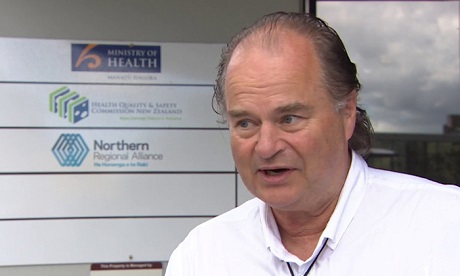Māori have learned harsh lessons since Auckland’s lockdown began say leaders in Māori health, data and science.
Papakura Marae general practitioner Dr Rawiri McKree Jansen (pictured) says one of his harsh lessons was being told health resources were limited – when they weren’t.
“When the majority population needed it, they have had unlimited resources, that’s not true for Māori communities.
“Māori communities are never well protected or well resourced.”
He says the Government has ignored his calls for an equity-based response to the Delta outbreak.
In his view, it favoured certain voices that aligned with “certain pressures” to ease restrictions.
“Māori deaths due to Covid are going to become normal and a lot of the deaths we’re going to see were preventable.”
The data on Māori Covid deaths looks grim. Dr Rawiri Taonui calculates that on 21 November Māori made up 42.9 percent of Delta variant deaths. They were 51.7 percent of new cases and 31.8 percent of hospitalisations.
Māori make up just 16.7 percent of the population.
Jansen says Māori vaccination levels are 20 percent below the general population’s.
“Failure to follow the science will … cost us in lives in Māori whānau.”
A statement on behalf of the Ministry of Health, Associate Health Minister (Māori Health) Peeni Henare and Covid-19 Response Minster Chris Hipkins says they had learned “a lot about the Delta variant in our response to this latest outbreak,”.
The Ministers also said they had been reminded of “the resilience of whānau, and the determination of Māori health providers and other organisations to support Māori communities.”
The statement says insights from Māori health providers had helped to inform the Māori Covid-19 response, which – by working with the ministry’s Māori Reference Group, the Māori Monitoring Group, Tumu whakarae (DHB general managers, Māori Health) and iwi – had ensured an equitable and fit-for-purpose response and vaccine roll-out.
Alongside DHB and public health unit support, $158 million in funding was available to support Māori communities and prepare for the traffic light system.
“While much of the work we’ve done through our Māori response has been successful in keeping whānau Māori safe and increasing Māori vaccination rates, there is always room for improvement, and this Government is committed to continuing the good work in partnership with iwi, Māori health and disability experts, and Māori organisations.”
Auckland University senior researcher Andrew Sporle calculates it will take Māori at least four weeks to get up to 90 percent first doses.
He thinks it will be well beyond Christmas before Māori are 90 percent fully vaccinated and later again before 90 percent of the population, based on Stats New Zealand figures – is actually reached.
At present nationally that figure is 65 percent.
“Wellington still isn’t listening to Māori on the ground. If you put a population out there with 70 percent [vaccination] coverage, a lot of people are going to get the virus and die and it’s going to happen a lot quicker,” Sporle said.
“It’s going to be brutal. It’s only when communities are screaming that they get the resources they need.”
Source
- Stuff
- Image: Waatea News
News category: New Zealand.




